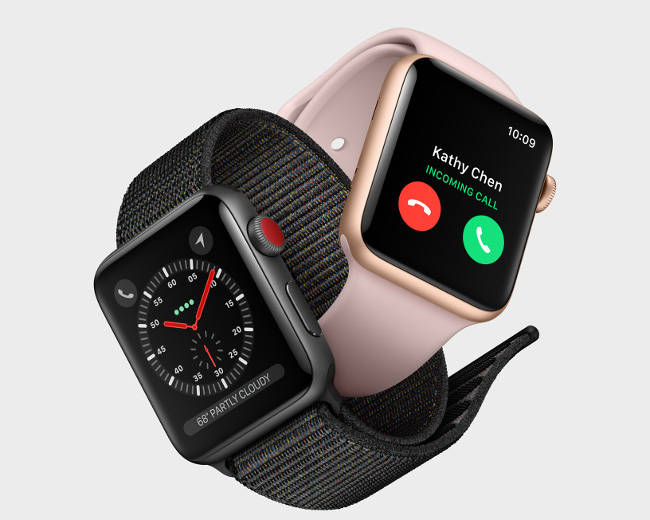The Clock Is Ticking On A Possible US Import Ban For Apple Watch

The Biden Administration has decided not to veto a ruling, which could result in an import ban on Apple Watches that include patent-infringing heart monitoring hardware.
By not issuing a review during the 60-day window allowed, the White House has effectively approved a December decision by the US International Trade Commission (ITC) that found Apple has infringed on electrocardiogram (ECG) patents held by AliveCor.
The ITC's limited exclusion order and cease and desist order barring the importation of offending Apple Watches – and the $2 per Watch bond Apple will owe for all imports during the 60-day review window – are therefore one step closer to implementation.
AliveCor, which specializes in heart monitoring hardware and software, used to produce a watch strap called the KardiaBand that connected to Apple Watch Series 1–3 devices to add ECG capabilities. The company accused Apple of infringing on its patents by adding ECG capabilities to the Apple Watch in Series 4, and by making newer Apple Watch models incompatible with the KardiaBand.
AliveCor has since discontinued its product.
"This decision goes beyond AliveCor and sends a clear message to innovators that the US will protect patents to build and scale new technologies that benefit consumers," stated AliveCor CEO Priya Abani.
As first reported by Reuters, AliveCor is also suing Apple in California federal court for monopolizing the US market for Apple Watch heart rate analysis apps. Apple has countersued, alleging AliveCor has infringed on some of its patents, too.
Apple Watches aren't going anywhere yet
With cryptocurrency investments just not as cool as they used to be, it might be tempting to see the Apple Watch as a hot new investment – scoop one up now and you could corner the market once that ban goes into effect.
Not so fast.
As AliveCor admitted in its own press release announcing the Biden Administration's non-veto, bans will not come into force until appeals in the case have been heard. Those hearings might invalidate the contentious patents.
In December, the US Patent and Trademark Office's Trial and Appeal Board decided [PDF] that a patent being claimed in AliveCor's case was invalid because Apple had demonstrated that similar technology had been developed by medical professionals and published prior to AliveCor's patent filing.
US patent no. 10,595,731 – specifically its first 30 claims – is the first patent cited in the ITC decision, and precisely what the USPTO invalidated. AliveCor has filed an appeal [PDF] in the decision, and it'll have to be settled before Apple Watches are impounded at the border.
Apple didn't respond to our questions about how it intends to respond, but is reportedly planning to appeal the ITC decision on the grounds that it would have a negative effect on public health. ®
From Chip War To Cloud War: The Next Frontier In Global Tech Competition
The global chip war, characterized by intense competition among nations and corporations for supremacy in semiconductor ... Read more
The High Stakes Of Tech Regulation: Security Risks And Market Dynamics
The influence of tech giants in the global economy continues to grow, raising crucial questions about how to balance sec... Read more
The Tyranny Of Instagram Interiors: Why It's Time To Break Free From Algorithm-Driven Aesthetics
Instagram has become a dominant force in shaping interior design trends, offering a seemingly endless stream of inspirat... Read more
The Data Crunch In AI: Strategies For Sustainability
Exploring solutions to the imminent exhaustion of internet data for AI training.As the artificial intelligence (AI) indu... Read more
Google Abandons Four-Year Effort To Remove Cookies From Chrome Browser
After four years of dedicated effort, Google has decided to abandon its plan to remove third-party cookies from its Chro... Read more
LinkedIn Embraces AI And Gamification To Drive User Engagement And Revenue
In an effort to tackle slowing revenue growth and enhance user engagement, LinkedIn is turning to artificial intelligenc... Read more

